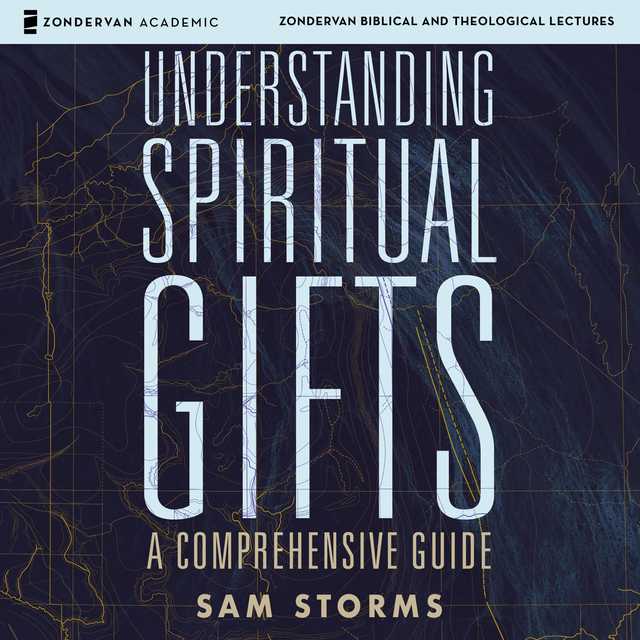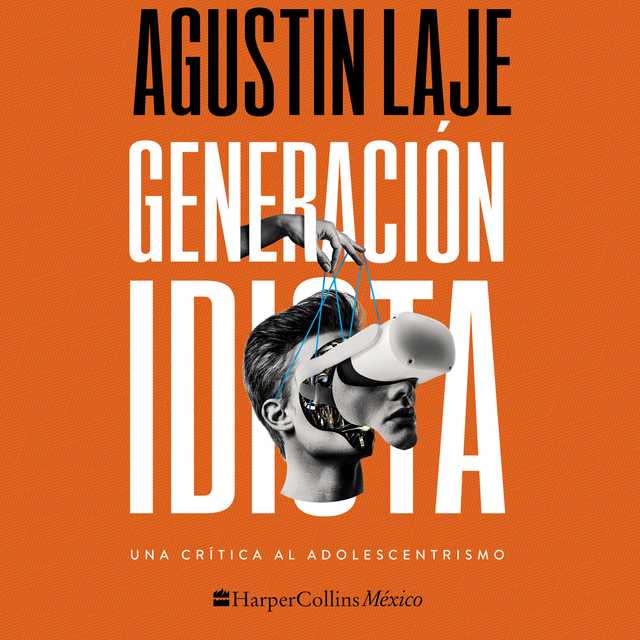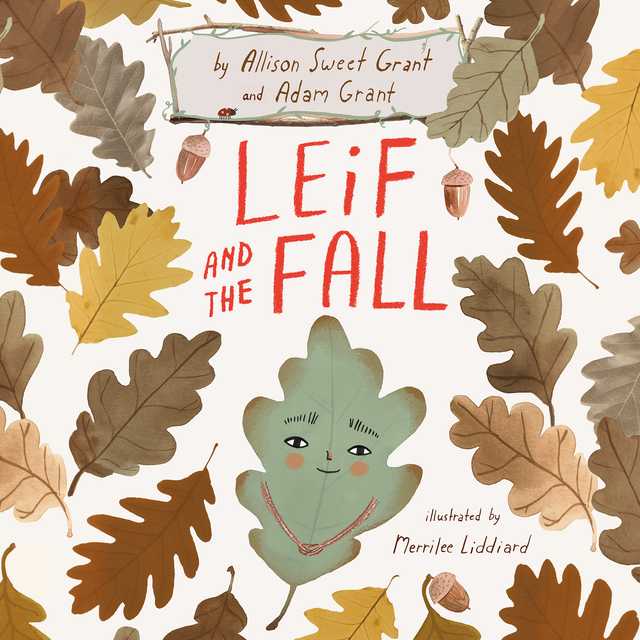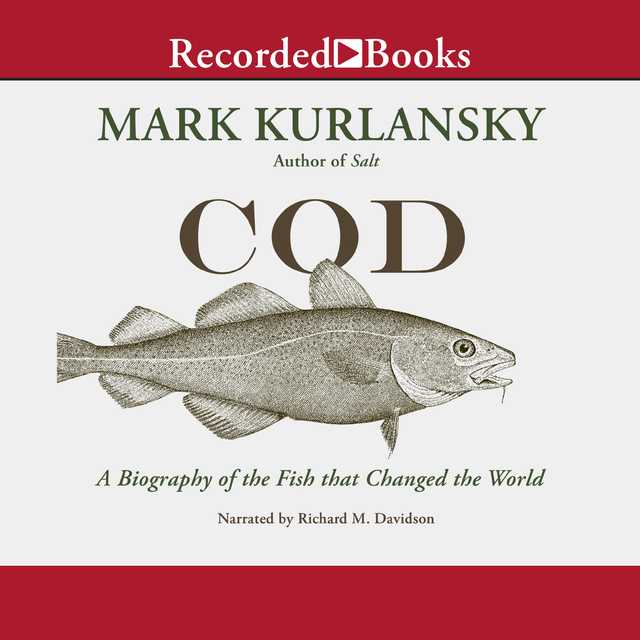Understanding Spiritual Gifts: Audio Lectures Audiobook Summary
The Zondervan Biblical and Theological Lectures series provides a unique audio learning experience. Unlike a traditional audiobook’s direct narration of a book’s text, Spiritual Gifts: Audio Lectures includes high quality live-recordings of college-level lectures that cover the important points from each subject as well as relevant material from other sources.
What are spiritual gifts?
Author and pastor Sam Storms has spent several decades teaching on the topic of the spiritual gifts and equipping believers in the faithful practice of God’s gifts. Yet there remains a great deal of confusion about the nature of the gifts and how they best function in the body of Christ.
In these audio lectures on the spiritual gifts, Storms addresses the many bizarre and misleading interpretations that abound and confronts the tendency to downplay the urgency of spiritual gifts for Christian living and ministry. He explains how spiritual gifts, both the more miraculous and the somewhat mundane, are given to build up the body of Christ. God has graciously provided these “manifestations of the Spirit” so that believers might encourage, edify, strengthen, instruct, and console one another, all with a view to an ever-increasing, incremental transformation into the image of Jesus Christ.
Storms unpacks the glorious truth that there is a supernatural and divine energy or power that fills and indwells the body and soul of every born-again believer. God does not call upon us to speculate about the nature of this power or to embrace it as a mere idea. His desire is that we avail ourselves of it to partner with him in his purposes on the earth. His desire is that we cry out to him that he might intensify, expand, increase, and deepen the manifestation of this power through us in ever more demonstrative and tangible ways in our lives.
Understanding Spiritual Gifts addresses common questions about the gifts and provides practical training for using and exercising the gifts in ministry. It is perfect for any individual or group who wants to grow in their understanding of the gifts for today.
Other Top Audiobooks
Understanding Spiritual Gifts: Audio Lectures Audiobook Narrator
Sam Storms is the narrator of Understanding Spiritual Gifts: Audio Lectures audiobook that was written by Sam Storms
About the Author(s) of Understanding Spiritual Gifts: Audio Lectures
Sam Storms is the author of Understanding Spiritual Gifts: Audio Lectures
More From the Same
Understanding Spiritual Gifts: Audio Lectures Full Details
| Narrator | Sam Storms |
| Length | 8 hours 1 minutes |
| Author | Sam Storms |
| Category | |
| Publisher | Zondervan |
| Release date | September 28, 2021 |
| ISBN | 9780310111559 |
Subjects
The publisher of the Understanding Spiritual Gifts: Audio Lectures is Zondervan. includes the following subjects: The BISAC Subject Code is Christianity, Pentecostal & Charismatic, Religion
Additional info
The publisher of the Understanding Spiritual Gifts: Audio Lectures is Zondervan. The imprint is Zondervan. It is supplied by Zondervan. The ISBN-13 is 9780310111559.
Global Availability
This book is only available in the United States.
Goodreads Reviews
Philip
July 06, 2021
I'm so glad Storms put this together. So good to have a single resource by him on this topic. It's more broad than Grudem's 'The Gift of Prophecy' and doesn't have some of the theological eccentricities of Deere's 'Surprised by the Power of the Spirit' (though both are excellent books in their own right). I'm stoked that there's a comprehensive work on this from someone theologically solid in a bunch of areas (Storms is an amillennial, Calvinistic, complementarian evangelical Protestant). Even when I don't agree with a particular nuance or detail, I still think he's barking up the right tree, and I would just articulate something slightly differently. His arguments against cessationism are sound (IMO), and I appreciated his charitable interaction with dudes in that camp that I froth (Schreiner, Gaffin etc.). Particularly good here were the citations from church history. The second appendix, where Storms discusses the future of the charismatic movement, was well done. He is gracious, but does not pull any punches about a plethora of things that need quick adjusting, forever putting to bed the criticism that the movement does not 'police its own.' If you're continuationist and wanting to understand your own position better, or if you're cessationist and wanting to understand where your 'chaotic' friends are coming from, I enthusiastically recommend this book.
George P.
September 01, 2020
Understanding Spiritual Gifts by Sam Storms describes itself as a “comprehensive guide” to the topic. Its author describeshimself as “an Amillennial, Calvinistic, charismatic, credo-baptistic, complementarian, Christian Hedonist.” which helps you understand his theological and ecclesiological point of view (as well as affinity for John Piper!). He is founder of Enjoying God Ministries, senior pastor of Bridgeway Church in Oklahoma City, Oklahoma, and an erstwhile professor with a Ph.D. in intellectual history from the University of Texas at Dallas.Storms has published four books and several articles on the topic of spiritual gifts, which he helpfully lists on pages xviii–xix, and from which he has adapted some of the material in Understanding Spiritual Gifts. The previous books include The Beginner’s Guide to Spiritual Gifts (2002, reprinted 2013), Convergence (2005), Practicing the Power(2017), and The Language of Heaven (2019). I have not read the earlier books, so I cannot how or to what extent this book draws on them.Storms defines spiritual gifts this way:"A spiritual gift is when the Holy Spirit manifests his presence and imparts his power into and through individual believers to enable them to exceed the limitations of their finite humanity so that they might faithfully and effectively fulfill certain ministry tasks for the building up of the body of Christ (20)."The author divides his argument into six parts:1. The Nature, Purpose, and Prayerful Pursuit of Spiritual Gifts (1–66)2. The Debate over the Cessation or Continuation of Miraculous Gifts of the Spirit (67–146)3. Revelatory Gifts of the Spirit (147–202)4. Speaking in Tongues (203–238)5. Faith, Healing, and Miracles (239–278)6. Other Gifts and Apostleship (279–318)As can be seen from these titles, Storms covers the topics that are a matter of sometimes heated debate between continuationists and cessationists, as well as among continuationists, that is, among believers who are Pentecostal, charismatic, and Third Wave.Storms directs his strongest arguments against cessationism, though these arguments are always graciously expressed. He defines a cessationist as “someone who believes that certain spiritual gifts, typically those of a more overtly supernatural nature, ceased to be given by God to the church sometime late in the first century AD (or more gradually through the course of the next few centuries)” (69). By contrast, a continuationist is “a person who believes that all the gifts of the Spirit continue to be given by God and are therefore operative in the church today and should be prayed for and sought after” (69). He devotes an entire section of the book to refuting cessationism (69–145), but he maintains a running critique of cessationism throughout the book as he examines various biblical passages.As a charismatic, Storms positions himself between classical Pentecostalism and the so-called Third Wave. He does not affirm Pentecostalism’s interpretation of baptism in the Holy Spirit as an experience separate from and subsequent to conversion, though he does not spend much time developing his critique of its doctrine either (47). Similarly, though he does not address the topic explicitly, it is apparent that he denies Pentecostalism’s understanding of tongues as initial physical evidence, even as he leaves open the possibility that God wants every believer to speak in tongues, if only as a private language of prayer. (225–231).Storms cites the New Apostolic Reformation (NAR) as the context for discussing the debate regarding apostolic ministry. He writes, “I question whether there would be much of a controversy over the subject of apostleship were it not for the emergence of what is called the New Apostolic Reformation” (295). His treatment of the topic threads the needle between a cessationist denial of even the possibility of contemporary apostles on the one hand and NAR’s extravagant claims about its leaders apostolic giftedness on the other. Storms surveys the New Testament data, which points to a larger group of apostles than just The Twelve plus Paul, seeming to agree with Frank Chan’s definition of an apostles “remarkable leaders sent by God to establish new spheres of ministry by setting up the key governmental structures necessary for those ministries” (295). This definition is broad enough to encompass The Twelve plus Paul, others denominated “apostle” in the New Testament, and contemporary claimants as well.I have drawn attention to how Storms distinguishes himself from cessationists, Pentecostals, and the Third Wave so that potential readers may understand where he is coming from theologically. However, aside from the extended debate with cessationism, Storms does not spend significant space on in-house continuationist debates. Rather, he works through the New Testament material patiently and thoroughly to arrive at a reasonable interpretation of what the various spiritual gifts are, what they’re for, how to seek them, and how to use them in individual and corporate contexts.As a classical Pentecostal, I disagree with Storms’ dismissal of Pentecostalism’s doctrines of Spirit baptism and initial physical evidence. I also found his complementarianism irksome, arising as it did in a discussion of why Paul would permit women to prophesy but not to teach men (185–186), although thankfully this is the only reference to complementarianism in the book.On the whole, however, I appreciated Storms’ exposition of the biblical material, along with his seasoned advice about how to use the gifts, and why. And his running critique of cessationism is worth the price of the book, which is quite reasonable for a text of this length. Whether you’re a pastor or a church member, I recommend Understanding Spirit Giftsas an addition to your library. You don’t have to agree with everything Storms writes to derive value from itBook ReviewedSam Storms, Understanding Spiritual Gifts: A Comprehensive Guide (Grand Rapids, MI: Zondervan, 2020).P.S. If you liked my review, please click “Helpful” on my Amazon review page.
Matt
April 27, 2022
I came to this book as a “cautious continuationist” (or maybe more accurately a “skeptical continuationist”). But after reading this book I’d say I’m now a “questioning continuationist.” The structure of this book is basically 1) arguments for continuationism and 2) an explanation of each of the spiritual gifts. (FYI The book gets a bit technical at times.)This book was much more theologically stretching than I was expecting. I have a higher respect for this view and for Sam Storms as a result of reading. Although I learned a lot, the most helpful thing I took away from this book was devotional. Even though I’m leaning toward the continuationist camp, I’m functionally a cessationist. Sadly, I often don’t believe that God is at work by His Spirit, that He is powerful, and that He wants to (and can) work powerfully through me. Storms compellingly presents a big view of God and a confidence in His work in the church today. His faith that is evident in this book is contagious.
Joel
May 16, 2021
** spoiler alert ** Storms outlines that we are expected in the new testament, and we are exhorted to pursue them. We have no strong exegetical argument to say that they have ceased. Certainly, we then must be desiring, but discerning. the cluster argument simply helps us explain why we do not see the same strength or number of gifts today, not prove that they have ceased. Not sure about his arguments around apostolic gifting or office.
Daniel
September 23, 2022
Thoughtful and thorough dive into the continuationist view of the spiritual gifts. Supported by scripture. As a cessationist I must admit I was challenged by this book and came away with a deeper respect for the opposing view even if I am not yet convinced.
Devon
June 13, 2022
A very helpful and in depth guide. A worthwhile pickup if you want to know more about the gifts of the Spirit.
Andrew
August 24, 2021
Great summary of Dr. Storm's other work.
Luke
October 24, 2021
Loved this
Sam
April 13, 2022
VERY thorough—he leaves nearly no stone unturned. As always, Sam communicates with great clarity and charity. Recommend!
Barry
November 03, 2020
Without question THE best book I have ever read on the topic of spiritual gifts. The thoughtful exegesis of all the major NT texts are unmatched.
Frequently asked questions
Listening to audiobooks not only easy, it is also very convenient. You can listen to audiobooks on almost every device. From your laptop to your smart phone or even a smart speaker like Apple HomePod or even Alexa. Here’s how you can get started listening to audiobooks.
- 1. Download your favorite audiobook app such as Speechify.
- 2. Sign up for an account.
- 3. Browse the library for the best audiobooks and select the first one for free
- 4. Download the audiobook file to your device
- 5. Open the Speechify audiobook app and select the audiobook you want to listen to.
- 6. Adjust the playback speed and other settings to your preference.
- 7. Press play and enjoy!
While you can listen to the bestsellers on almost any device, and preferences may vary, generally smart phones are offer the most convenience factor. You could be working out, grocery shopping, or even watching your dog in the dog park on a Saturday morning.
However, most audiobook apps work across multiple devices so you can pick up that riveting new Stephen King book you started at the dog park, back on your laptop when you get back home.
Speechify is one of the best apps for audiobooks. The pricing structure is the most competitive in the market and the app is easy to use. It features the best sellers and award winning authors. Listen to your favorite books or discover new ones and listen to real voice actors read to you. Getting started is easy, the first book is free.
Research showcasing the brain health benefits of reading on a regular basis is wide-ranging and undeniable. However, research comparing the benefits of reading vs listening is much more sparse. According to professor of psychology and author Dr. Kristen Willeumier, though, there is good reason to believe that the reading experience provided by audiobooks offers many of the same brain benefits as reading a physical book.
Audiobooks are recordings of books that are read aloud by a professional voice actor. The recordings are typically available for purchase and download in digital formats such as MP3, WMA, or AAC. They can also be streamed from online services like Speechify, Audible, AppleBooks, or Spotify.
You simply download the app onto your smart phone, create your account, and in Speechify, you can choose your first book, from our vast library of best-sellers and classics, to read for free.
Audiobooks, like real books can add up over time. Here’s where you can listen to audiobooks for free. Speechify let’s you read your first best seller for free. Apart from that, we have a vast selection of free audiobooks that you can enjoy. Get the same rich experience no matter if the book was free or not.
It depends. Yes, there are free audiobooks and paid audiobooks. Speechify offers a blend of both!
It varies. The easiest way depends on a few things. The app and service you use, which device, and platform. Speechify is the easiest way to listen to audiobooks. Downloading the app is quick. It is not a large app and does not eat up space on your iPhone or Android device.
Listening to audiobooks on your smart phone, with Speechify, is the easiest way to listen to audiobooks.






























